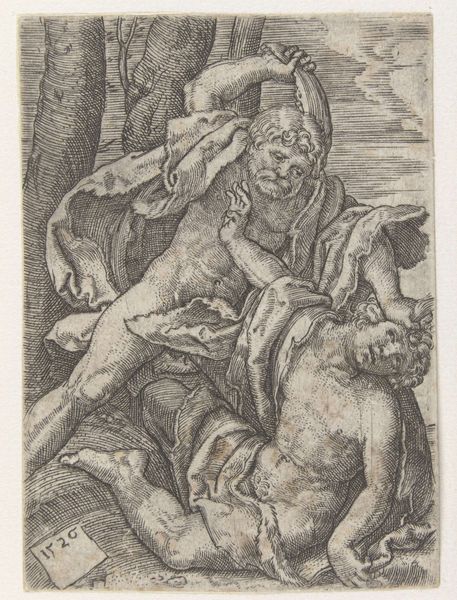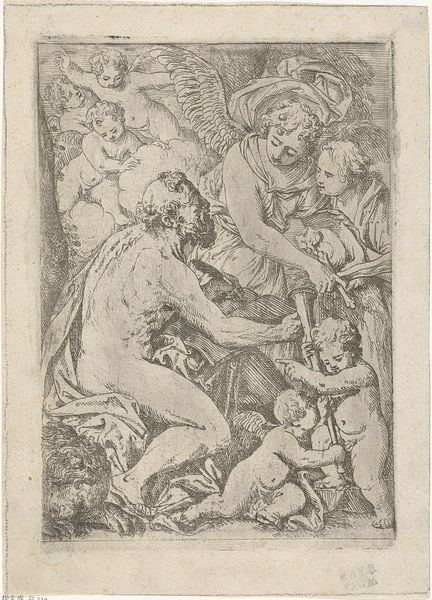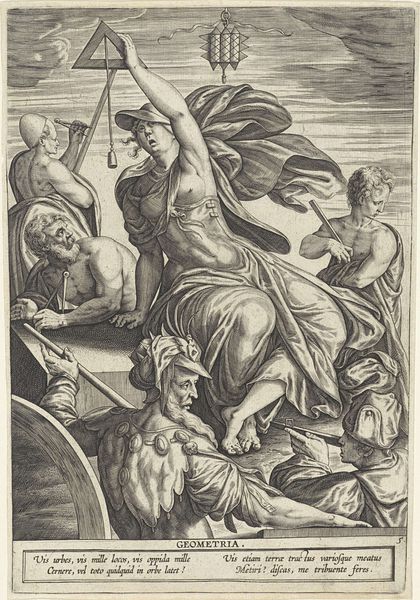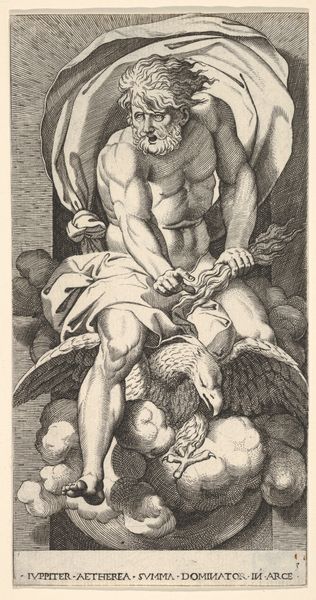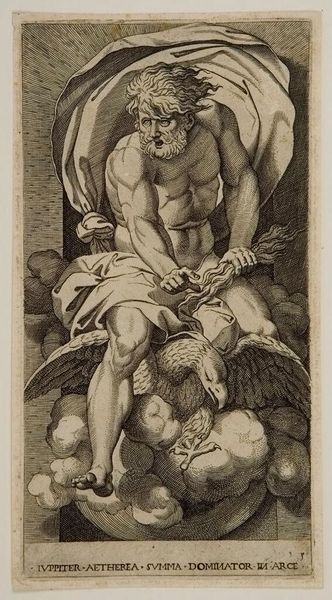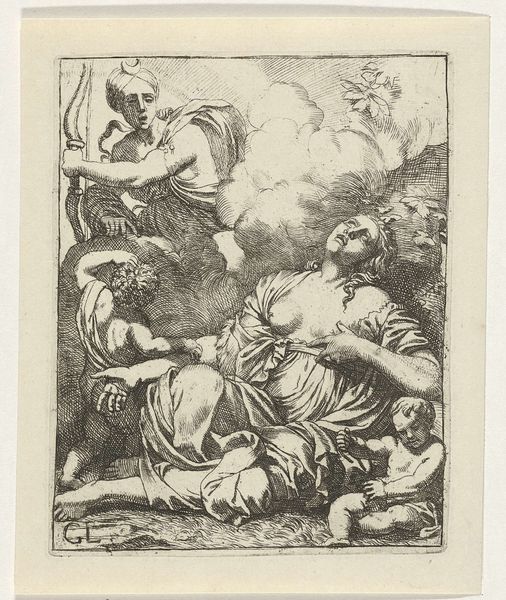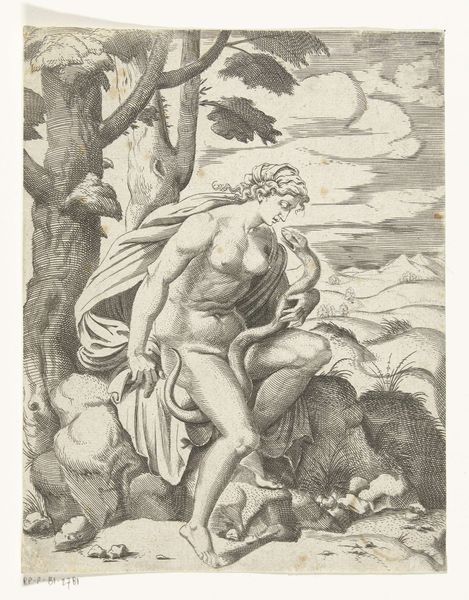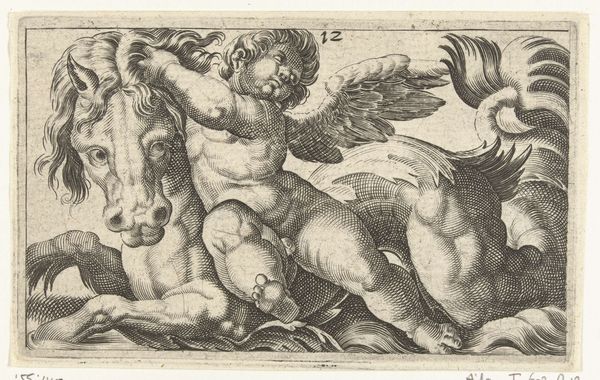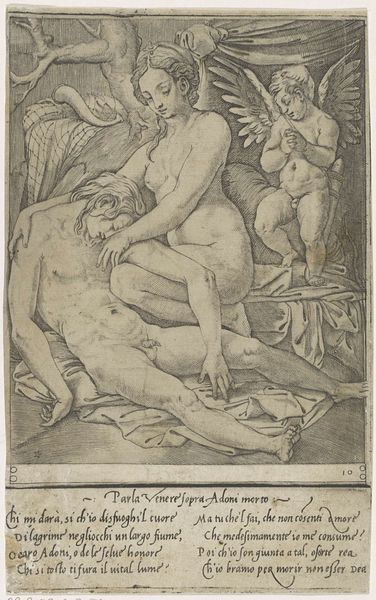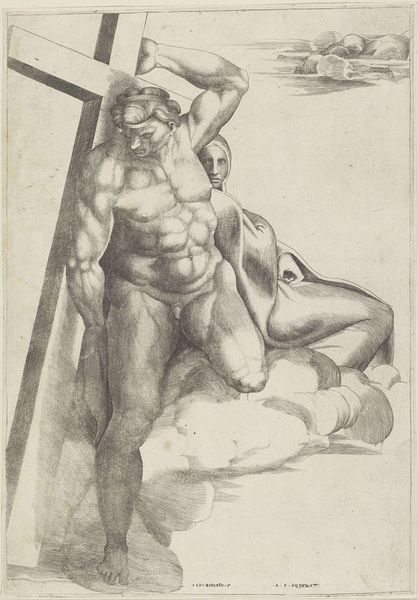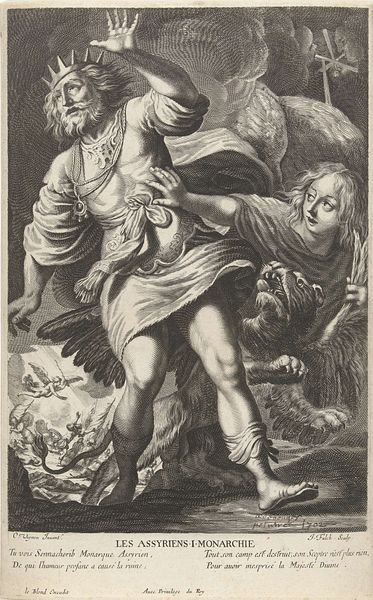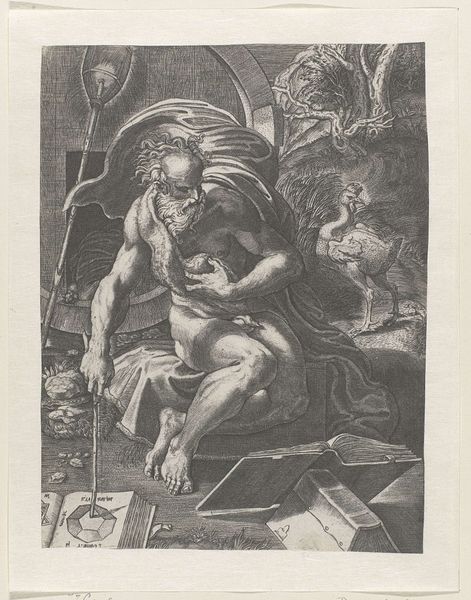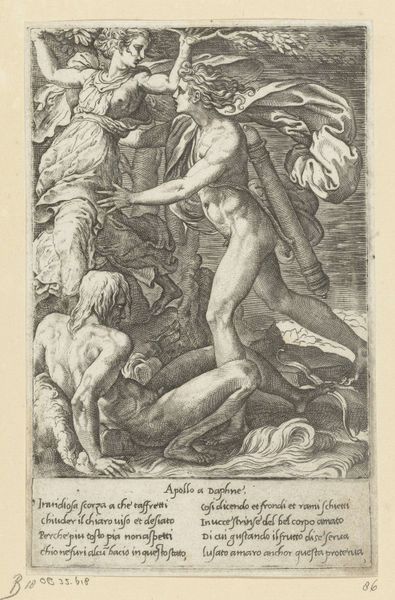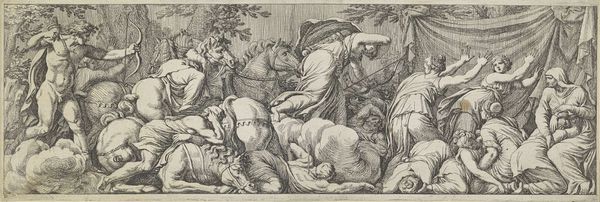
print, engraving
#
allegory
# print
#
figuration
#
history-painting
#
northern-renaissance
#
engraving
Dimensions: height 214 mm, width 109 mm
Copyright: Rijks Museum: Open Domain
Editor: This engraving, titled "Jupiter," created by Jacob Binck sometime between 1510 and 1569, depicts a muscular figure perched atop an eagle. The overall effect of the piece, rendered solely in monochrome lines, feels quite dramatic. What do you see when you look at this piece? Curator: Immediately, the structural contrasts strike me. The figure of Jupiter is rendered with bold, almost exaggerated musculature, while the eagle and clouds upon which he sits are conveyed with a softer, more diffused linework. Observe the directionality of the lines. Notice how they coalesce to construct the robust form of the god and contrast this with the almost chaotic freedom within the cloudscape beneath. It presents a formal tension between power and ethereal formlessness. Editor: So, you’re saying that the composition itself, through line and contrast, tells a story about Jupiter’s dominion over, perhaps, the less defined elements of the world? Curator: Precisely. Binck uses the intrinsic elements of the print—line, form, and composition—to construct a visual language of power and hierarchy. Consider, too, the frame: a rigid architectural structure behind the dynamism of the central figures. Does that framework amplify or mitigate the impact? Editor: I think the stark background serves to further emphasize the rounded, active shapes in the foreground. Curator: Agreed. By isolating Jupiter and his symbolic companions within this structured space, Binck creates a sense of focused power, devoid of unnecessary embellishment. This enhances the visual potency of the engraving and clarifies the themes explored. What do you take away from our discussion of the piece? Editor: Looking closely at the structure has helped me better understand the story that Binck’s engraving is telling through visual composition.
Comments
No comments
Be the first to comment and join the conversation on the ultimate creative platform.
